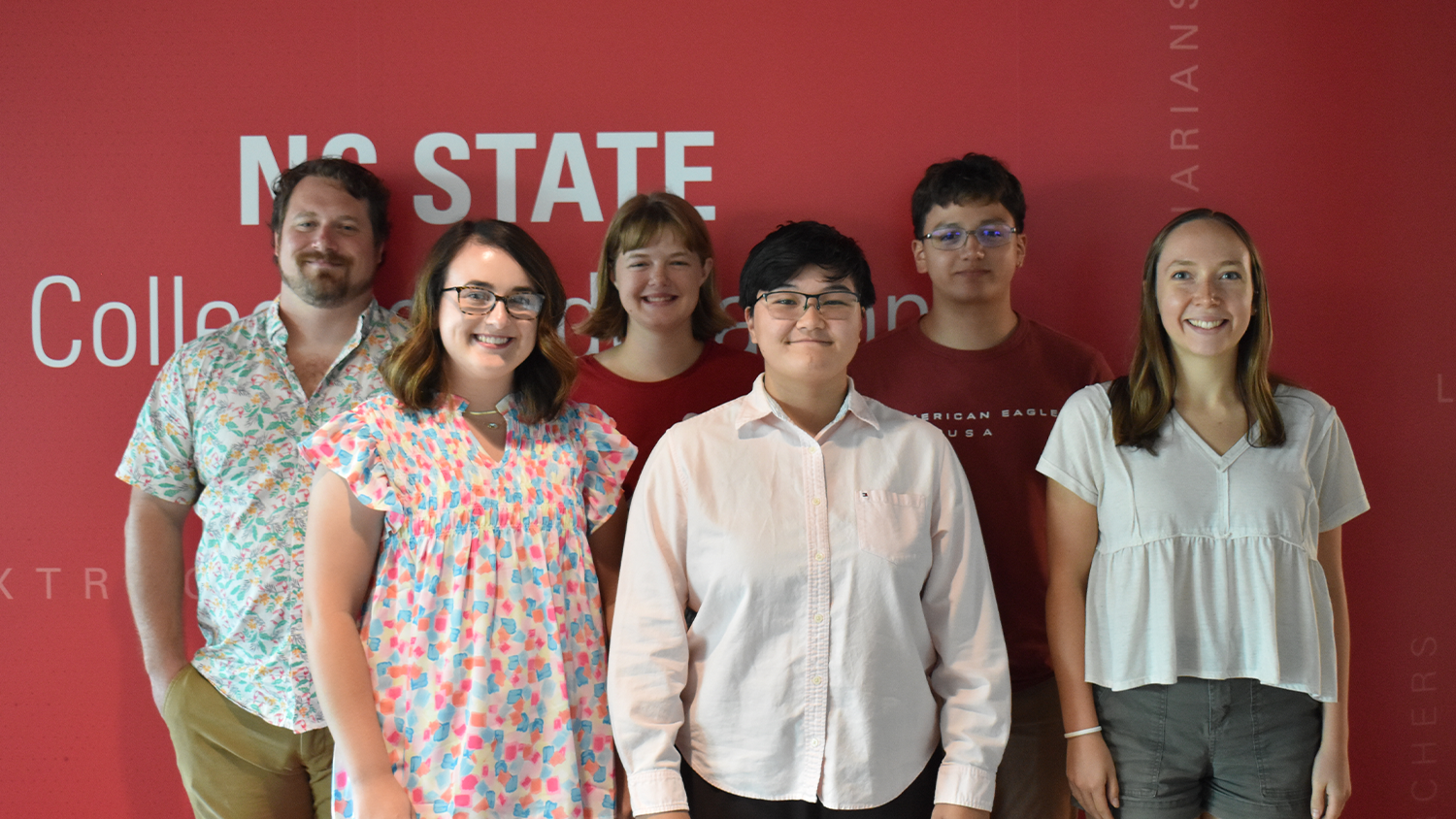Six College of Education Students Prepare to Address Teacher Shortages By Becoming Math, Science Educators Through NC State STEM Education Scholars Program

When Mark Voller was a child, he loved borrowing his father’s National Geographic and Scientific American magazines, even before he was old enough to read or understand the articles. He also has fond memories of exploring around the creek in his backyard and, later on, taking his young nephew to the same creek to conduct small experiments, like whether leaves, rocks and sticks would float or sink.
These experiences inspired Voller to pursue a career as a science teacher, which he is doing with help from the NC State STEM Education Scholars Program.
“The STEM Education Scholars Program gives me the opportunity and flexibility to completely invest in my personal and professional development as a future STEM educator,” said Voller, who is earning a Master of Arts in Teaching. “Having the enthusiastic support of the program coordinators is energizing and welcoming, and our unique skills and personalities are appreciated. I am proud to be part of the STEM Education Scholars Program and feel inspired to fulfill the high standards it demands.”
Funded by a five-year, $1,199,913 grant from the National Science Foundation Robert Noyce Teacher Scholarship Program, the STEM Education Scholars Program will prepare 21 high-quality math and science teachers committed to serving four years in North Carolina school districts facing teacher shortages to improve student outcomes. “Our NC STEM Education Scholars program hopes to address the issue of teacher shortages by recruiting, preparing and training STEM teachers for high-needs middle and high schools,” said Associate Dean for Research and Innovation Karen Hollebrands, one of the principal investigators on the project, along with Assistant Teaching Professor of Science Education Matt Reynolds, Associate Teaching Professor of Mathematics Education Cyndi Edgington and NC State College of Sciences Assistant Teaching Professor Joy Little.
STEM Education Scholars receive scholarship funding of up to $34,000 across their junior and senior years as they earn an undergraduate degree in mathematics education or science education, or up to $22,000 for participants with an undergraduate STEM degree who are earning their Master of Arts in Teaching.
The first cohort of STEM Education Scholars consists of six students:
- Laura Griffin, Master of Arts in Teaching in Mathematics Education
- Olivia Hare, Science Education
- Kiera Hawkins, Science Education
- Charlie Hernandez, Mathematics Education
- Elizabeth Ireland, Mathematics Education
- Mark Voller, Master of Arts in Teaching in Science Education
In addition to preparing to teach in a high-needs district, these STEM Education Scholars will have the opportunity to engage in learning experiences to deepen their understanding of the content they will teach as well as learn asset-based pedagogies designed to engage students from diverse populations.
For Hernandez, the desire to serve a broad range of students is what drew him to education in the first place. Participating in this program, he said, will allow him to learn and incorporate new and different methods of teaching in his future classroom and inspire his future students to understand the important role their individuality can play in the field of mathematics.
“Being selected as a STEM Education Scholar tells me that there are people who believe in me and what I can bring to the field,” he said. “I really appreciate the faith that has been placed upon me, and I truly cannot wait to get to work with an amazing group of people. Being selected means I get to be a part of something much larger than myself, it allows me to leave my mark on a program that will hopefully cultivate many more passionate future educators who cannot wait to put the knowledge they are learning to work.”
Participants in the STEM Education Scholars Program will also have opportunities to engage in additional early field experiences, with a specific focus on learning skills that will assist them in working in high-need schools. By the time the five-year project concludes, about 9,000 students will be impacted by the work of NC State STEM Education Scholars.
“I hope to use what I learn to positively impact my students. I want my classroom to be a place they know is safe and a place they know I will push them to succeed because I care,” Ireland said.
This post was originally published in College of Education News.
- Categories:


